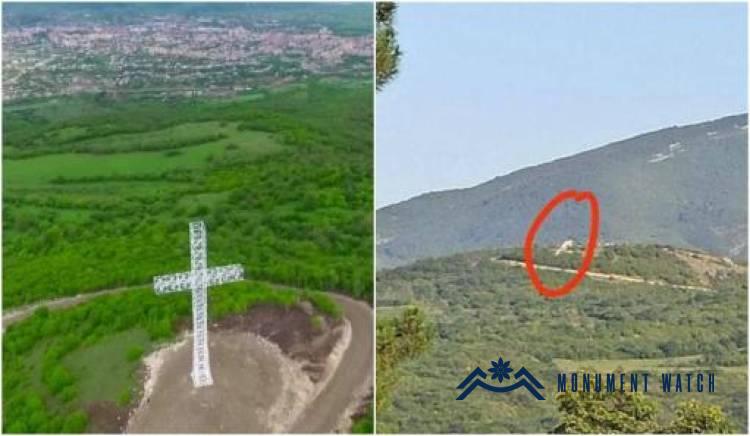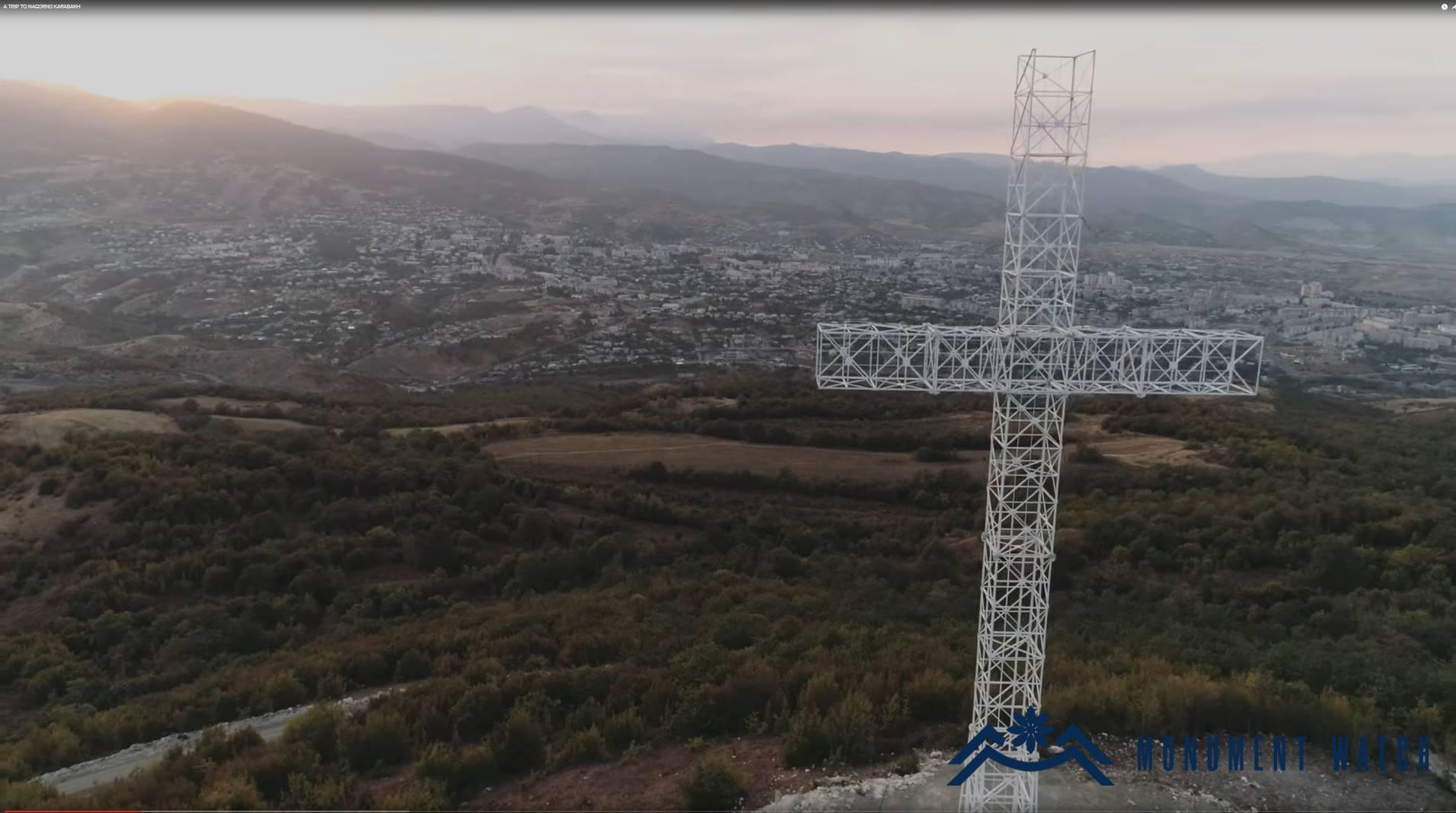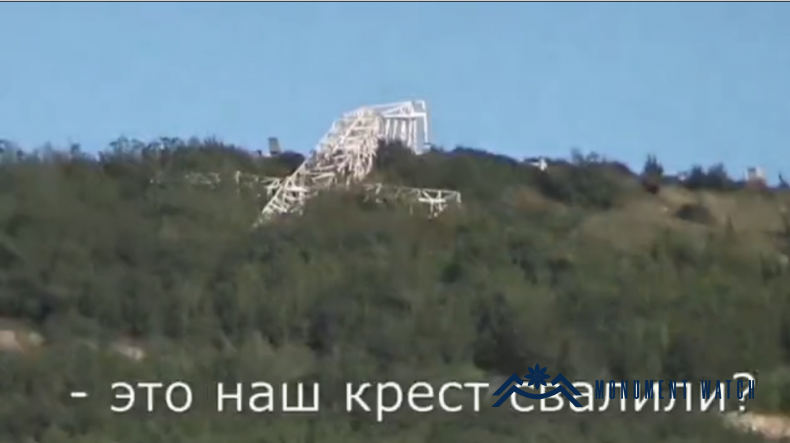Azerbaijan Toppled the Cross in Stepanakert
Following the aggressive military operations in September 2023 and the complete depopulation of Artsakh, Azerbaijan persists in the destruction of Armenian cultural heritage based on ethnic grounds. The confirmation of these events manifested in the collapse of the 50-meter illuminated cross on a hill near Dashushen village, close to Stepanakert. This incident not only dealt a blow to cultural heritage but also to the entire Christian Armenian community (https://t.me/sisumasis/68310?fbclid=IwAR1q8xSPnU2rv0MpFYP8hdgrfLTGB8lIo5CT10dcRFE6Vdc1c9LKJHm8iYE). The footage capturing the fallen cross was initially released through the Telegram channel of the Ukrainian publication Strana.ua.
The video, recorded on September 29, 2023, depicts the cross lying on the ground (https://www.youtube.com/watch?v=s1PonCbyJP8).
The cross, installed on May 9, 2017, served as a memorial to honor the servicemen who sacrificed their lives for the liberation and defense of Artsakh. Ranking as the second-highest in the European region, it was prominently visible from all sides of Stepanakert, the capital of Artsakh. The cross was illuminated with special lights, ensuring its visibility even during nighttime (https://www.facebook.com/watch/?v=1464736120263360).
Our response
It is worth reiterating that harm inflicted upon the cultural values of any nation represents a setback to the collective cultural legacy of humanity. Each nation contributes uniquely to global cultural diversity, and damage to any cultural values is a loss for all of humanity. Per the Hague Convention of 1954, a cornerstone for numerous international treaties, its inaugural article encapsulates the essence of cultural value "Regardless of origin or owner, movable or immovable heritage holds immense importance. This includes architectural structures, monuments of art or history, irrespective of their religious or secular nature." In line with Article 4 of the 1954 Hague Convention for the Protection of Cultural Property in Time of Armed Conflict, any acts of vandalism, theft, robbery, misappropriation, hostilities, and reprisals against cultural heritage are expressly prohibited. Furthermore, according to the first Hague Protocol of 1954, it is forbidden to destroy cultural or spiritual values in occupied territories.
The intentional policy of destroying cultural heritage is also explicitly condemned by UNESCO's 2003 declaration "On the Deliberate Destruction of Cultural Heritage."


